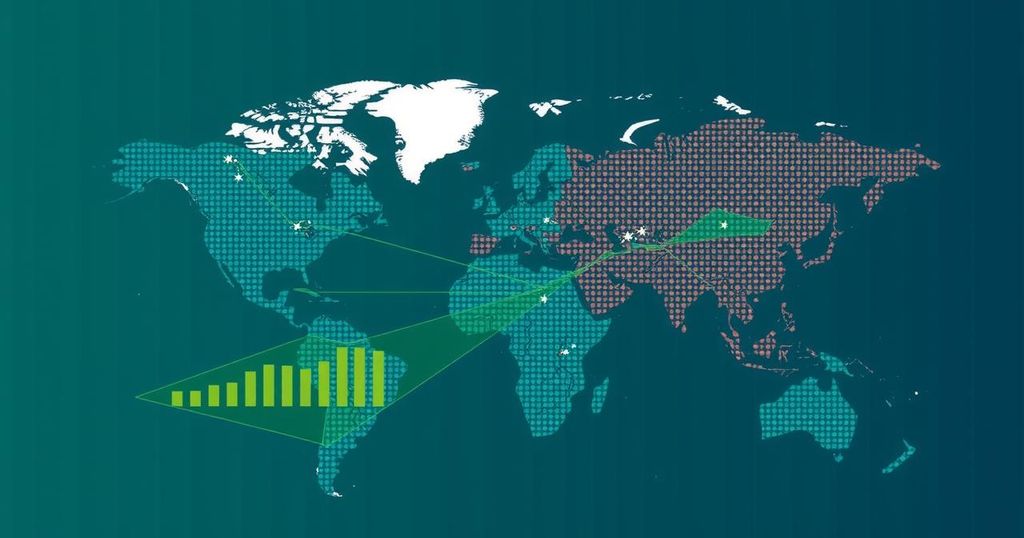Global Elections in 2024 Highlight Eroding Commitment to Climate Action
The 2024 election year, dubbed the biggest in history, has revealed a distressing decline in global commitment to climate action amidst escalating climate disasters. Key political victories for climate skeptics like Donald Trump have shifted attention away from climate issues, as concerns over inflation and energy prices dominate discourse. While some regions maintain progressive stances on climate, the overall momentum towards environmental action appears to wane, particularly following a stagnant Cop29 summit. Strikingly, the urgency of the climate crisis persists, highlighting the need for immediate action and commitment.
The unprecedented election year of 2024 has highlighted a concerning trend: many nations are witnessing a deterioration in their commitment to combating the climate crisis, despite witnessing increasing disasters and record high temperatures. With significant electoral events taking place across the globe, including victories for climate skeptics like Donald Trump and other right-wing parties, climate action is increasingly sidelined. Catherine Fieschi, an expert in European politics, noted that climate issues have taken a back seat amid rising concerns over inflation and energy costs.
From the peak of climate activism around five years ago, represented by Greta Thunberg’s advocacy, climate has slipped in priority due to various global tensions, including the pandemic and geopolitical conflicts. Fieschi emphasized, “It’s been a bad year for climate and we’ve seen gradual erosion in the public’s commitment to action.”
Despite the likelihood of 2024 being the hottest year on record, climate change remains largely a background issue in elections. In India, however, extreme weather conditions have notably influenced electoral outcomes in favour of Narendra Modi. Some countries, like the UK, experienced different trends, with Labour’s emphasis on clean energy leading to significant electoral success.
Overall, current elections suggest a waning global momentum towards addressing rising temperatures, against a backdrop of scientists warning us about breaching critical climate targets. Jan-Werner Müller, a political scientist, remarked, “If you repeat the talking points and framing of the hard right, you are just making them more powerful.”
Compounding these concerns, the recent Cop29 climate summit in Azerbaijan, attended by few world leaders, exposed the stagnation in discussions around fossil fuels and climate finance. Activists expressed frustration over the lack of progress, with Gerry Arances stating, “We started Cop29 with alarm that the outcome of the US presidential elections would deter global climate action.”
Although there remains hope in the renewable energy sector, the transient nature of political will towards climate action underscores an urgent need for sustained commitment and action. Müller concluded, “We are running out of precious time. Every day lost matters now.”
The context of the article revolves around the global political landscape in 2024, a year characterized by numerous elections that are affecting climate policies and commitments worldwide. As elections unfold, a troubling trend emerges: climate activism and policy are being deprioritized despite escalating climate-related disasters. Historical climate activism had created significant momentum; however, recent geopolitical and economic challenges, including a focus on inflation and energy costs, have shifted public and political attention away from climate issues. The combination of populist political gains and the consequences of climate inaction raises urgent concerns among scientists and activists regarding the future of climate negotiations and global action.
In conclusion, the election year of 2024 has revealed a disheartening trend of diminishing commitment to climate action across many countries. While past activism had amplified the urgency for collective action against climate change, current electoral outcomes suggest a worrying shift in priorities. As political leaders navigate economic and geopolitical concerns, the climate crisis continues to deepen, emphasizing the urgent need for renewed commitment and action to avert irreversible damage to the planet. The future of global climate initiatives remains uncertain, necessitating immediate and proactive measures from both policymakers and the public.
Original Source: www.theguardian.com




Post Comment